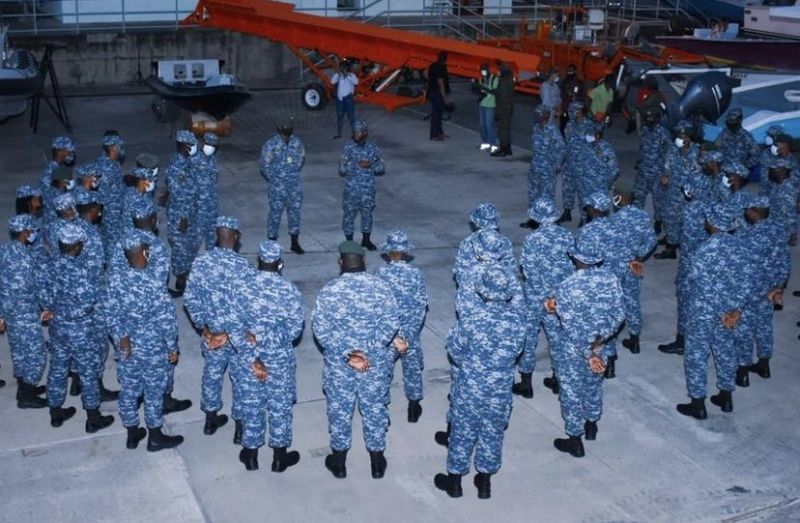
Power cuts after another 'explosive event' in SVG
The La Soufrière volcano first erupted on Friday, April 9, 2021, blanketing the island in a layer of ash and forcing some 16,000 people to evacuate their homes.
Residents in Barbados, nearly 200km (about 124 miles) to the east, have also been urged to stay indoors due to falling volcanic ash.
People on the island of St Lucia, which is around 76km north of St Vincent, have been warned to expect air quality to be affected, with harmful gases potentially making it harder to breathe for people with conditions such as asthma.
 The Barbados Defence Force (BDF) deployed
a contingent as part of the Regional Security System’s (RSS)
humanitarian assistance and disaster response (HADR) mission to St
Vincent and the Grenadines (SVG) in the aftermath of the La Soufrière
volcano eruption.
The Barbados Defence Force (BDF) deployed
a contingent as part of the Regional Security System’s (RSS)
humanitarian assistance and disaster response (HADR) mission to St
Vincent and the Grenadines (SVG) in the aftermath of the La Soufrière
volcano eruption.'Loud explosion'
And, according to our sources in St Vincent, a loud explosion was heard around 1:00am after which the island was plunged into darkness. Water supplies have cut as a result of the power outage.
Scientists warn that eruptions could continue for days - or even weeks.
On Sunday, St Vincent's emergency management organisation Nemo tweeted: "Massive power outage following another explosive event at La Soufriere Volcano. Lightning, thunder and rumblings. Majority of the country out of power and covered in ash."
The Barbados Defence Force has been deployed to St Vincent to provide humanitarian assistance as part of a disaster response mission, the Caribbean Disaster Emergency Management Agency said.
Several other Caribbean countries, including Antigua and Guyana, have offered to send emergency supplies to St Vincent. They also said they would open their borders to those fleeing the fallout from the eruption.
The volcano had been dormant since 1979, but in late 2020 it started spewing steam and smoke and making rumbling noises.










